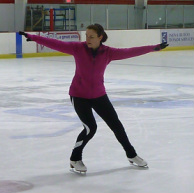|
On a recent trip, I struck up a conversation with a fellow traveler. He mentioned that he coaches his son's little league team. I told him a little about what I do, and he suggested that I include more focus on coaches. I told him I do work with coaches, helping them to design effective skill development environments for their athletes, motivate and support their athletes through the ups and downs of sport competition and preparation, and help them become strong, confident people. He said, "But remember, coaches are people, too." I asked him to elaborate. "Well, athletes get anxious or unmotivated or angry when they don't do well, but so do coaches. Who motivated the coaches or helps them handle their anxiety or anger or stress?" He used the examples of Indiana chair-tossing legend Bobby Knight and more recently Mike Rice, Rutgers' infamous abusive coach. "We might condemn their overreaction," he said, "but maybe they would benefit from some coaching themselves." I pondered this. Many coach training or education courses focus more on the athletes and touch only lightly on things like the values a coach should possess (see Coaching article "Developing Your Coaching Vision"), or how to recognize and neutralize feelings that may be negative and result in overt negative behavior, loss of confidence, even burnout. The key to recognizing these is having a strong self-awareness.
Coaches, like any other people, have needs, feelings, wants. But too often they are taught to put the needs of their athletes first. This can lead to coaches neglecting their own needs. When this happens, their self-confidence and feelings of worth can suffer. They may feel anxious, guilty, sad, or even ashamed at times. The negative feelings can then manifest in behaviors such as poor communication, overworking, giving up or impulsiveness. Self-awareness can help the coach recognize these feelings. Once they are recognized, they can be handled, reframed, replaced with positive feelings to increase motivation, commitment and desire once again. The coach's effectiveness is directly related to the management of distractions which result in negative or destructive feelings or behaviors. The distractions for coaches, as for anyone, come from many sources--family, athletes, colleagues, principals or administrators, team parents. Distractions cannot always be avoided. But they can be mitigated or "headed off at the pass." Self-awareness and the ability to handle distractions when they arise are things that can be taught using mental techniques. With consistent practice, coaches can be more effective and feel more satisfied with their own performance.
1 Comment
|
"Even if you are on the right track, you will get run over if you just sit there." Personal Best SportsThe sports world is filled with stories of perseverance, failure and success, personal struggles and public triumph. Each story provides insight into the mental side of sport and activity. Archives
March 2016
Categories
All
|

